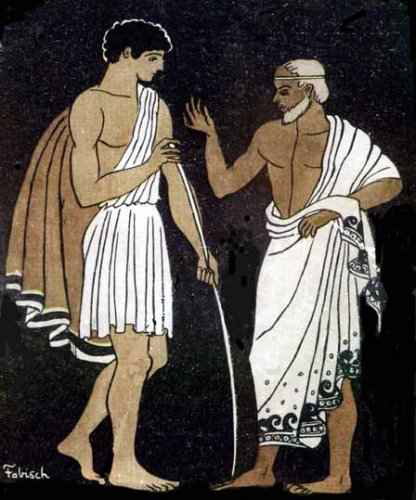Mentoring is a popular concept in ministry and education in the first decade of the 21st century. Books, conferences and journals on mentoring have sprung up in recent years, and various schools of thought regarding mentoring have emerged. While every Christian view of mentoring agrees that Jesus’ relationship with the twelve disciples serves as the foundational model for mentoring, the diversity of interpretations and applications of mentoring principles reveals that much ambiguity exists regarding the true nature of mentoring in real life situations.
There are many weak or erring models of Christian mentoring. One approach is to treat mentoring as information download where the mentor is merely passing on information to the protégé. This approach understands the student’s greatest need to be data that he doesn’t already possess. Another view conceives mentoring as mere accountability, where the mentor asks the protégé a number of questions in order to strengthen his spiritual discipline. The student is expected to share failures and successes honestly in order to experience both the joy and support he needs in his Christian life. Still another model of mentoring is practiced by those mentors who seek to mold the protégé into his own image, with all the same opinions, personality traits and idiosyncrasies. In effect, the mentor is trying to make a replica of himself, not helping the student become who God wants him to be.
A genuine understanding of mentoring acknowledges that each of these models contains elements of truth, but each is insufficient by itself. In addition, a mentor dare not leave it up to a student to shape the scope of the mentoring relationship. I agree with Howard Hendricks that a mentoring relationship ought to be based on what the student wants to learn from the mentor and not what the mentor wants. However, many times the protégé does not know what he needs, or may seek to avoid some of the more pressing needs in his life. Students who want mentors often think what they need most is that information download I mentioned earlier, and don’t realize that their greater need is guided character development and spiritual maturity. Also, many protégés who think they are being open and honest with their mentor pull back and keep parts of their inner life hidden as soon as the mentor begins to address those areas.
As a result, the mentor and student must craft together the nature of the relationship, but the student must remain open to the mentor’s scrutiny in areas of his life that the mentor senses needs examination. In the few years that I have been mentoring, I have come to believe that what my students need most is a relationship with me where they can let down their guard, be transparent and honest about their true selves, watch my life with all its warts, ask questions, challenge my answers, have me pray for them and with them, and generally say to them what Paul said in 1 Corinthians 11:1: “Be imitators of me, as I am of Christ.”
In Part 2 we’ll examine a vivid historical example of this kind of mentorship which occurred almost two millennia ago.



0 Comments